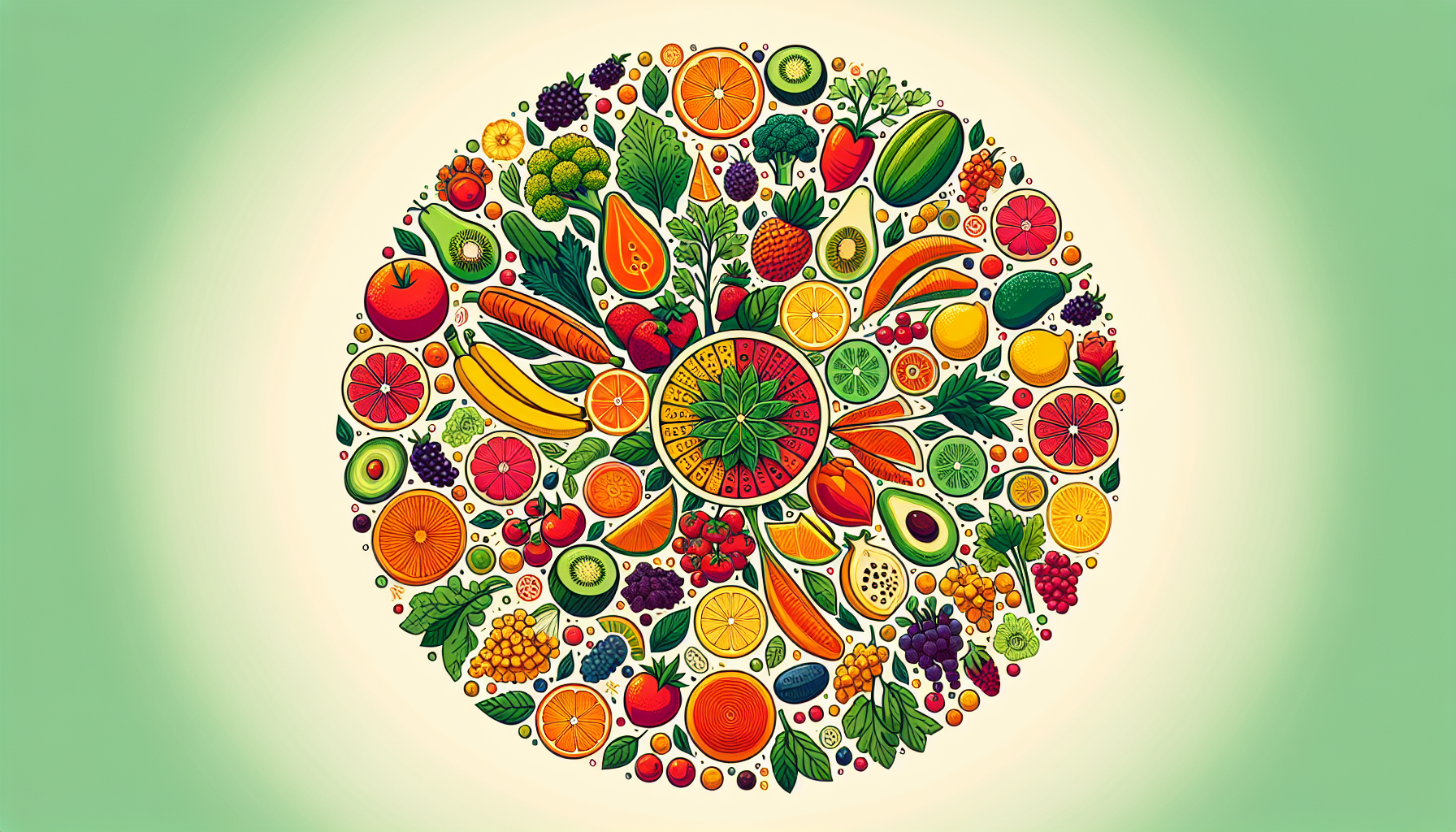Ayurveda, the ancient Indian system of medicine, holds a treasure trove of wisdom when it comes to nutrition and holistic wellness. Among its many practices, Ayurvedic detox stands out as a powerful technique to cleanse and rejuvenate the body. Drawing from India’s rich traditions, Ayurvedic detox offers natural healing methods that have stood the test of time. In this article, we explore the principles and benefits of Ayurvedic nutrition and delve into the world of Ayurvedic detox, unlocking ancient secrets for a healthier, more balanced life.

Ayurvedic Nutrition
Introduction to Ayurvedic Nutrition
Ayurvedic nutrition is a holistic and personalized approach to diet and eating based on the principles of Ayurveda, an ancient system of medicine from India. Ayurveda views food as medicine and believes that a properly balanced and nourishing diet is essential for optimal health and well-being. In Ayurvedic nutrition, food is not only seen as a source of physical sustenance but also as a means to maintain harmony within the body and promote overall wellness.
Basic Principles of Ayurvedic Nutrition
The basic principles of Ayurvedic nutrition revolve around the concept of three doshas, or fundamental energies, that govern all physiological and psychological processes in the body. These doshas are known as Vata, Pitta, and Kapha. Each person has a unique combination of these doshas, which determines their physical constitution and mental tendencies. Ayurvedic nutrition aims to balance these doshas through the appropriate choice of foods, spices, and cooking methods.
Doshas and Ayurvedic Nutrition
In Ayurvedic nutrition, the three doshas – Vata, Pitta, and Kapha – play a vital role in determining the type of diet that is most suitable for an individual. Each dosha is associated with specific qualities and elements. Vata is associated with air and ether, Pitta is associated with fire and water, and Kapha is associated with earth and water.
People with a dominant Vata dosha tend to have a light and cold constitution, and they benefit from warm and grounding foods like cooked grains, root vegetables, and nourishing soups. Pitta-dominant individuals have a fiery and intense nature, and they thrive on cooling and calming foods like fresh fruits, vegetables, and whole grains. Kapha-dominant individuals have a heavier and more stable constitution, and they benefit from lighter and warming foods like spicy dishes, steamed vegetables, and bitter herbs.

Ayurvedic Detox
Understanding Ayurvedic Detoxification
Ayurvedic detoxification, also known as Panchakarma, is a comprehensive cleansing and rejuvenation process that aims to remove accumulated toxins from the body and restore balance. According to Ayurveda, toxins, known as Ama, are created as a result of improper digestion, poor lifestyle choices, and environmental factors. These toxins can disrupt the normal functioning of the body and lead to various health issues.
Ayurvedic detoxification involves a series of therapies and practices, including specialized massages, herbal treatments, oil enemas, and dietary modifications. It is a holistic approach that addresses both the physical and mental aspects of detoxification, promoting deep cleansing and rejuvenation at a cellular level.
Benefits of Ayurvedic Detox
Ayurvedic detoxification offers a wide range of benefits for the body and mind. It helps to eliminate toxins, improve digestion, boost immunity, enhance mental clarity, promote weight loss, and rejuvenate the tissues. Ayurvedic detox is also known to reduce inflammation, balance hormones, increase energy levels, improve skin health, and create a sense of overall well-being.
By removing accumulated toxins from the body, Ayurvedic detoxification allows the natural healing mechanisms of the body to function optimally, leading to improved vitality and longevity. It is a powerful tool for preventing and managing chronic diseases, improving the quality of life, and promoting holistic wellness.
Preparation for Ayurvedic Detox
Before embarking on an Ayurvedic detoxification program, it is essential to prepare the body and mind for the cleansing process. Preparation typically involves following a specialized pre-detox diet and lifestyle regimen for a certain period of time. This helps to prepare the digestive system, increase the efficiency of elimination channels, and minimize the discomfort of detox symptoms.
The pre-detox diet may include light and easily digestible foods, such as soups, steamed vegetables, and whole grains. It is important to avoid processed foods, refined sugars, caffeine, alcohol, and other toxins during the preparation phase. In addition to dietary changes, other preparatory practices may include self-massage with herbal oils, gentle exercise, meditation, and adequate rest and relaxation.
Ayurvedic Detoxification Techniques
Ayurvedic detoxification utilizes various techniques and therapies to facilitate the elimination of toxins from the body. These techniques may include:
- Abhyanga: A specialized Ayurvedic massage using warm herbal oils to promote lymphatic drainage and stimulate the release of toxins.
- Swedana: Herbal steam therapy to open up the pores and facilitate the removal of toxins through sweat.
- Basti: Herbal oil enemas to cleanse the colon and eliminate accumulated waste.
- Virechana: Herbal purgation to eliminate excess Pitta and toxins from the body.
- Nasya: Administration of herbal oils or powders through the nasal passages to cleanse and nourish the head and sinuses.
- Shirodhara: A soothing therapy where warm medicated oil is poured in a continuous stream over the forehead, promoting deep relaxation and detoxification.
These detoxification techniques are usually performed under the guidance of a trained Ayurvedic practitioner, who tailors the therapies to suit the individual’s unique needs and dosha imbalances.
Detoxifying Foods in Ayurveda
In Ayurveda, certain foods are considered to have detoxifying properties and are recommended during the detoxification process. These foods help to support the body’s natural cleansing mechanisms and aid in the elimination of toxins. Some common detoxifying foods in Ayurveda include:
- Ginger: Known for its digestive and detoxifying properties, ginger helps to stimulate the metabolism and improve digestion.
- Turmeric: A powerful anti-inflammatory spice, turmeric aids in detoxification by supporting liver function and reducing inflammation.
- Green Leafy Vegetables: Rich in antioxidants and fiber, green leafy vegetables help to cleanse the blood, support the liver, and aid in digestion.
- Bitter Herbs: Herbs like dandelion, burdock, and neem have a strong detoxifying effect on the body, helping to purify the blood and eliminate toxins.
- Triphala: A traditional Ayurvedic herbal formula, Triphala supports the digestive system, promotes regular elimination, and detoxifies the body.
Including these detoxifying foods in the diet can enhance the effectiveness of Ayurvedic detoxification therapies and support long-term health and vitality.
Ayurvedic Detox Recipes
During the detoxification process, it is important to follow a clean and nourishing diet that supports the body’s natural detoxification pathways. Here are a few Ayurvedic detox recipes to get started:
- Ginger-Lemon Detox Water: Mix freshly grated ginger, lemon juice, and a teaspoon of honey in warm water. Drink this detox water in the morning to cleanse and aid digestion.
- Detoxifying Kitchari: Cook a combination of basmati rice, mung beans, and detoxifying spices like cumin, coriander, turmeric, and ginger. This lightweight and nourishing dish is a staple during the detoxification process.
- Detox Vegetable Soup: Prepare a vegetable broth using detoxifying vegetables like carrots, celery, spinach, and kale. Season it with Ayurvedic spices like cumin, coriander, and black pepper for added detox benefits.
- Detox Green Smoothie: Blend together fresh spinach, cucumber, kiwi, parsley, mint leaves, and a squeeze of lemon juice for a refreshing and detoxifying smoothie.
These recipes are just a starting point, and one can explore a wide range of Ayurvedic detox recipes that suit their taste preferences and dosha needs.
Duration and Frequency of Ayurvedic Detox
The duration and frequency of Ayurvedic detoxification depend on individual needs and dosha imbalances. In general, Ayurvedic detox programs can last anywhere from a few days to several weeks. Shorter detox programs may be suitable for individuals with mild imbalances or as a regular seasonal cleanse. Longer programs are recommended for individuals with chronic health issues or more complex imbalances.
The frequency of detoxification also varies based on individual needs. Some individuals may benefit from a yearly or biannual detox, while others may require more frequent detoxification to maintain balance. It is important to consult with an experienced Ayurvedic practitioner to determine the most appropriate duration and frequency of detox.
Managing Detox Symptoms
During the Ayurvedic detoxification process, it is common to experience certain detox symptoms as the body releases toxins. These symptoms may include fatigue, headaches, mood swings, skin breakouts, and digestive disturbances. It is essential to manage these symptoms effectively to ensure a smooth and successful detox journey.
Some ways to manage detox symptoms include getting plenty of rest, staying hydrated, practicing gentle exercise like yoga or walking, taking warm baths, and incorporating stress-reducing practices like meditation and deep breathing. It is also important to communicate any unusual or severe symptoms to the Ayurvedic practitioner overseeing the detox program for appropriate guidance and support.
Post-Detox Guidelines
After completing an Ayurvedic detox program, it is crucial to transition back to a regular, balanced diet and lifestyle gradually. During the post-detox phase, the body is in a sensitive and vulnerable state, and sudden changes or indulgences can disrupt the progress made during detoxification.
It is recommended to continue following a clean and nourishing diet that includes a variety of whole foods, fruits, vegetables, healthy fats, and lean proteins. Regular exercise, stress management, and adequate sleep are also important for maintaining the benefits of the detoxification process. It is advisable to consult with an Ayurvedic practitioner to develop a personalized post-detox plan that supports long-term health and well-being.
Consulting an Ayurvedic Practitioner for Detox
Due to the personalized nature of Ayurvedic nutrition and detoxification, it is highly recommended to consult with a qualified Ayurvedic practitioner before embarking on a detox program. An Ayurvedic practitioner will assess an individual’s dosha constitution and imbalances, provide personalized guidance on dietary and lifestyle modifications, and oversee the detoxification process.
They will consider factors such as age, health conditions, and individual goals to create a customized detox plan that addresses specific needs. Regular follow-up consultations with the Ayurvedic practitioner can help monitor progress, make necessary adjustments, and provide ongoing support throughout the detox journey.
In conclusion, Ayurvedic nutrition and detoxification offer a holistic and individualized approach to cleansing and rejuvenating the body and mind. By understanding the principles of Ayurvedic nutrition, the doshas, and the various detoxification techniques, individuals can make informed choices to support their overall health and well-being. Consulting an Ayurvedic practitioner is key to receiving personalized guidance and ensuring a safe and effective detox experience. Embark on this ancient wisdom of Ayurveda and unlock the path to optimal health and vitality.

